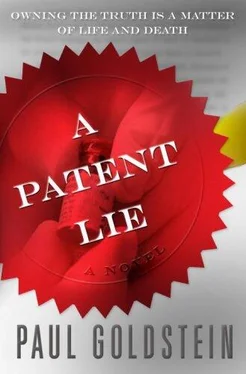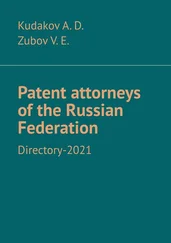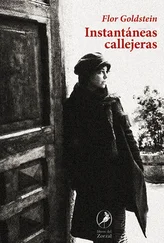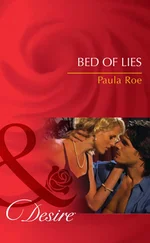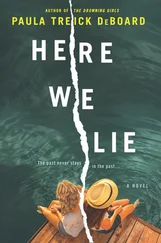Paul Goldstein - A Patent Lie
Здесь есть возможность читать онлайн «Paul Goldstein - A Patent Lie» весь текст электронной книги совершенно бесплатно (целиком полную версию без сокращений). В некоторых случаях можно слушать аудио, скачать через торрент в формате fb2 и присутствует краткое содержание. Жанр: Криминальный детектив, на английском языке. Описание произведения, (предисловие) а так же отзывы посетителей доступны на портале библиотеки ЛибКат.
- Название:A Patent Lie
- Автор:
- Жанр:
- Год:неизвестен
- ISBN:нет данных
- Рейтинг книги:3 / 5. Голосов: 1
-
Избранное:Добавить в избранное
- Отзывы:
-
Ваша оценка:
- 60
- 1
- 2
- 3
- 4
- 5
A Patent Lie: краткое содержание, описание и аннотация
Предлагаем к чтению аннотацию, описание, краткое содержание или предисловие (зависит от того, что написал сам автор книги «A Patent Lie»). Если вы не нашли необходимую информацию о книге — напишите в комментариях, мы постараемся отыскать её.
A Patent Lie — читать онлайн бесплатно полную книгу (весь текст) целиком
Ниже представлен текст книги, разбитый по страницам. Система сохранения места последней прочитанной страницы, позволяет с удобством читать онлайн бесплатно книгу «A Patent Lie», без необходимости каждый раз заново искать на чём Вы остановились. Поставьте закладку, и сможете в любой момент перейти на страницу, на которой закончили чтение.
Интервал:
Закладка:
Palmieri was listening, but his expression told Seeley nothing.
“All of this is informal,” Seeley said. “The St. Gall executive says, ‘On the other hand, wouldn't it be interesting if…’ and Warshaw says, ‘Very interesting if…’ and by the time they're done, they've agreed-nothing in writing of course-that Vaxtek will sue St. Gall for patent infringement, as it planned to do, and that St. Gall will attack the patent's validity. But, as its part of the deal, St. Gall will mount the weakest possible attack on the patent, guaranteeing that the jury will uphold the patent. Vaxtek will win the lawsuit and St. Gall will lose.”
“What's does St. Gall get out of the deal?”
“Vaxtek gives them a license to manufacture and sell AV/AS and agrees not to license the patent to anyone else. The two companies divide the world market between them. I figure Vaxtek gets North and South America and St. Gall gets Europe, Africa, and Asia.”
“They could get the same result by settling the case without a trial.”
Palmieri knew better than that, and Seeley wondered why he was still resisting.
“No,” Seeley said. “They need a formal judgment from a court that the patent is valid. That's the only way they can be sure they'll have the AV/AS market entirely to themselves. Some other company could challenge the patent, but when was the last time you heard of a competitor doing that? Once a court decides that a patent is valid, no one is going to go to the expense of trying to prove that it's invalid. But, for this to work, they have to have a court decision that the patent is valid.”
That was what Warshaw had said about the two crazed bidders at the charity auction. If they were smart, they'd stop the auction and split the prize. This is what Warshaw did with St. Gall. If keeping his patent meant making a deal with his adversary, he would do that. That the scheme would price AV/AS beyond the reach of AIDS victims who needed it most meant no more to him than did implicating his lawyer in a fraudulent lawsuit.
“The federal circuit could reverse the decision on appeal.”
Palmieri had to know that this objection, too, was weak.
“There won't be an appeal,” Seeley said. “And St. Gall won't move for a new trial or for the judge to overrule the jury's verdict. It's all part of the deal.”
“This is just a theory,” Palmieri said. “It's all hypothetical.”
Do you want facts, Seeley thought, a glimpse of the treacheries that kept me up all last night? He said, “Did it seem unusual to you how gentle Thorpe and Fischler were with our witnesses on cross? I kidded myself that it was because we prepared the witnesses so well. Why didn't they go after the discrepancies in Steinhardt's dates? They had to know about them.”
“If they knew our case was that weak they could have fl attened us.”
“That's exactly my point. They did know, and they could have fl attened us. But if they did that, if our patent was declared invalid, the price of AV/AS would fall through the floor.” Why was his bright second chair being so willfully obtuse? “They'd rather have half a loaf than none.” Another slice of Warshaw's wisdom. “And, remember,” Seeley said, “each company had a hammerlock on the other. St. Gall may have known about Steinhardt's double bookkeeping, but Vaxtek had its security officer's report on a St. Gall employee being in Steinhardt's lab alone, at night.”
It occurred to Seeley that, in a puzzle that fit with all the precision of a nightmare, he hadn't thought about Lily's role. Or Leonard's. “Some people,” he said as much to himself as to Palmieri, “are going to make a fortune if they bought Vaxtek stock, betting on the outcome of this case.”
“It's strange,” Palmieri said, “you spinning out a conspiracy theory.”
“Why strange?”
“Bob Pearsall dies, and of all the lawyers Vaxtek could hire to take over the case, they choose you-the brother of the company's head of research. No offense”-his voice was taut and close to breaking-“but if I were speculating about collusion, you'd be right at the center of it.”
This was why Palmieri was resisting. He was terrified. Someone had killed Pearsall because of what he knew, and now Palmieri was afraid for himself. Michael Seeley-Leonard Seeley's brother-was the last person he would confide in. It was Seeley who had been obtuse, not Palmieri.
“You're wrong about me,” Seeley said.
“How would I know that?”
“Farnsworth hears motions tomorrow morning at seven-thirty. I'm going to ask for a mistrial.”
“You're going to do this in open court-in front of Barnum and Thorpe?”
“I'll do it ex parte. Just the judge and me in chambers.”
“She'll never see you alone in the middle of a trial.”
“She's going to have to.”
“Even if she does, what makes you think she'll believe you? Where's your proof?”
“Farnsworth's been around a lot of trials. She'll understand.”
“And if she doesn't give you a mistrial, she's going to watch everything you do. Every question you ask Thorpe's witnesses. Or don't ask.”
Cross-examination, when it works, does so in only one direction-to weaken an adversary's case. Seeley didn't need Palmieri to remind him that it would be impossible to try to reverse the course of the trial through cross-examination of Thorpe's witnesses. This was why he had to get Farnsworth to declare a mistrial.
“You mean she'll be watching to see if I try to sabotage my client's case on cross the way you tried to do on direct?”
“I never said I did that. You did.”
Seeley slumped back in his chair and picked up the Koosmann papers. Deciding what questions to ask the epidemiologist was going to consume even more time than he ordinarily gave to preparing for cross-examination. Palmieri was right. If Farnsworth didn't believe him about the collusion, and refused to declare a mistrial, she would be watching his every step in the courtroom. But so, too, would the lawyers who helped set up the collusive lawsuit, Barnum and Thorpe.
“Let's get to work,” he said.
EIGHTEEN
On Monday, Judge Farnsworth proceeded through her 7:30 a.m. motion calendar, giving none of the lawyers waiting inside the gallery rail more than two minutes to argue their positions, and taking no more than a minute to give them her decision before dismissing them and moving on to the next pair of adversaries. The double doors opened and Thorpe came in, trailed by Fischler. The courtroom was darker than usual, and when Seeley looked up one of the lights in the coffered ceiling was out. For a moment, his eyes met the judge's. Even Farnsworth would be unable to dispose of his motion with her hangman's speed.
Farnsworth handed down the last pile of motion papers to the carrot-haired court reporter and was gathering her calendar to return to chambers when Seeley came through the gate. “In the Vaxtek case, Judge, we have a motion to file.”
Farnsworth remained standing. “You're not on the calendar, Mr. Seeley. Do we have papers from you?” She looked over Seeley's shoulder to where Thorpe was approaching. “Mr. Thorpe?”
“This is a surprise to me, too, Your Honor.” He stepped in close to Seeley so that their arms touched.
“It is a matter of some urgency,” Seeley said. “We didn't become aware of it until over the weekend.”
“Have you communicated with Mr. Thorpe?”
“We ask to speak with you ex parte.” In an ongoing lawsuit, a judge will meet with a lawyer outside the presence of his opponent only in the most extreme circumstances. “The motion involves a serious question of professional ethics.”
“That's an unusual request, Counselor. Mr. Thorpe, like you, is an officer of the court-and, I would add, a respected member of this bar.”
Читать дальшеИнтервал:
Закладка:
Похожие книги на «A Patent Lie»
Представляем Вашему вниманию похожие книги на «A Patent Lie» списком для выбора. Мы отобрали схожую по названию и смыслу литературу в надежде предоставить читателям больше вариантов отыскать новые, интересные, ещё непрочитанные произведения.
Обсуждение, отзывы о книге «A Patent Lie» и просто собственные мнения читателей. Оставьте ваши комментарии, напишите, что Вы думаете о произведении, его смысле или главных героях. Укажите что конкретно понравилось, а что нет, и почему Вы так считаете.
